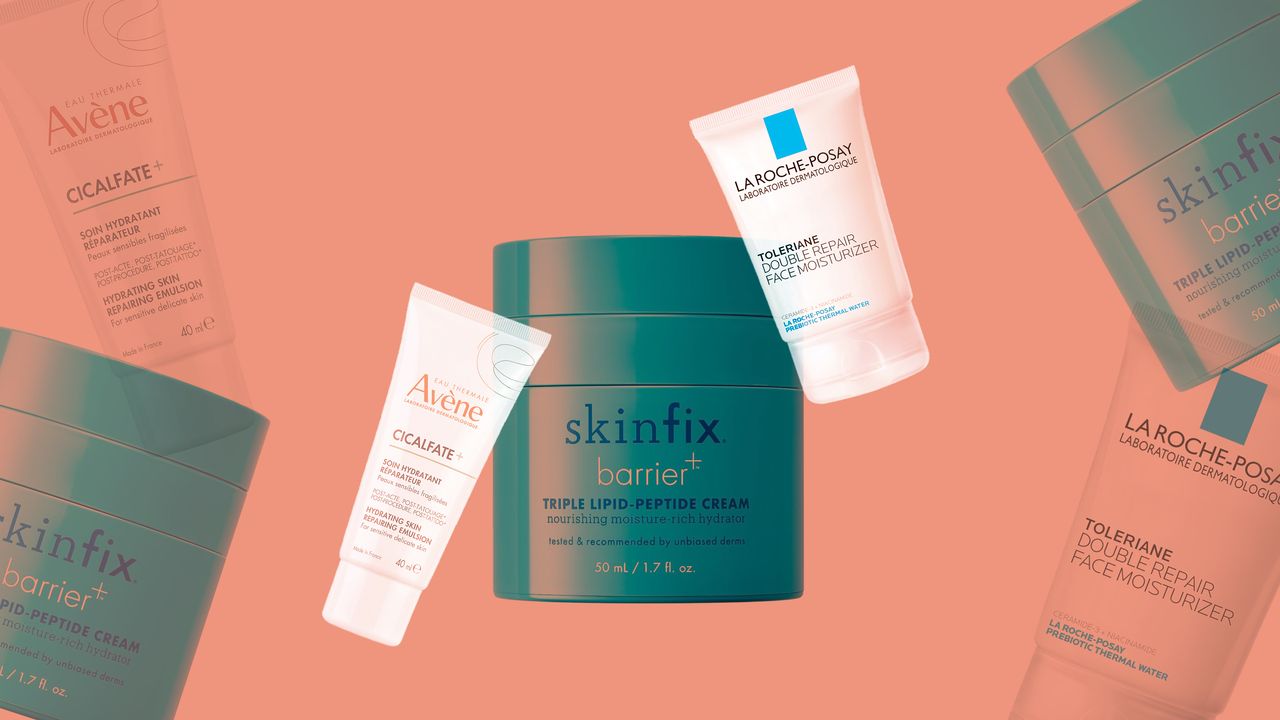Key ingredients: ceramides, hyaluronic acid, niacinamide | Fragrance-free: yes | Who it’s for: people with dry skin
Frequently Asked Questions
What should you look for in a moisturizer to pair with tretinoin?
When using tretinoin, it’s important to pair it with a moisturizer that hydrates, soothes, and supports your skin barrier. “The ideal moisturizer should replenish hydration, support the skin barrier, and minimize irritation,” says Dr. Sung, who recommends looking for ingredients like hyaluronic acid to attract moisture, ceramides and glycerin to lock it in, and niacinamide to help reduce redness and inflammation. “Squalane is another great option for lightweight moisture that won’t clog pores,” she says. For especially dry or compromised skin, fatty acids and cholesterol can also help keep the barrier strong and balanced.
What’s the sandwich method?
The “sandwich method” in skincare involves applying a layer of moisturizer before and after an active ingredient like tretinoin to help minimize irritation. “The first layer of moisturizer buffers tretinoin’s potency, reducing irritation, while the second seals in hydration,” says Dr. Sung.
This technique is especially helpful for those with dry or sensitive skin who need a gentler way to incorporate tretinoin into their routine, allowing the active to work effectively while protecting the skin barrier.
Is there anything to avoid in moisturizer when you’re using tretinoin?
When using tretinoin, it’s ideal to avoid moisturizers with potential irritants like fragrances, alcohols, and essential oils, since tretinoin can make skin more sensitive. “AHAs (like glycolic or lactic acid), BHAs (like salicylic acid), and vitamin C can increase irritation when used in the same routine as tretinoin,” says Dr. Sung. “If a patient wants to incorporate these, I recommend waiting a few weeks after starting tretinoin to ensure it’s well tolerated.”
She also suggests introducing exfoliants only once a week at first to avoid over-exfoliating. Occlusives like petrolatum and lanolin are great for dry skin but can be too heavy for acne-prone individuals and may trigger breakouts.
Meet the experts
- Martha Viera, MD, FAAD, board-certified dermatologist in private practice in Coral Gables, FL
- Alexandra Bowles, MD, a board-certified dermatologist at MONA Dermatology in Cincinnati, OH
- Sarah Sung, MD, FAAD, a board-certified dermatologist of The Perq based in Seattle
How we test and review products
When Allure tests a product, our editors look at it from every angle in an effort to best serve you. We review ingredients, scrutinize brand claims, and, when necessary, examine peer-reviewed scientific and medical studies. In addition to testing each and every product that’s included in each and every review, we rely on experts who shape their fields, including dermatology, cosmetic chemistry, and medicine, to help us vet the ingredients and formulas.

